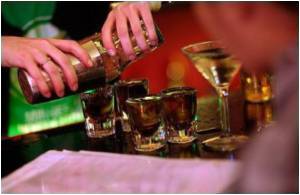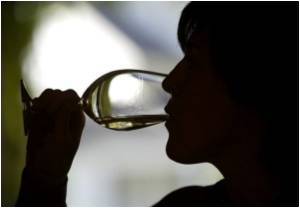A new study of Rutgers Alcohol Problem Index (RAPI) has found that problem drinking during adolescence is never just a phase.

"RAPI is a self-report questionnaire on the frequency with which an adolescent has experienced 23 consequences of drinking alcohol, such as getting into a fight with a friend or family member, in the preceding 18 months," explained Richard J. Rose, Professor Emeritus in psychology and brain science at Indiana University, Bloomington.
"It might seem silly to even question the existence of a direct pathway from problem drinking to alcohol dependence in that alcohol dependence is clearly the culmination of an escalating pattern of heavy and problem drinking," noted Matt McGue, a professor in the department of psychology at the University of Minnesota.
"That predictive association was stronger in females than males, and was confirmed in within-family comparisons of co-twins who differed in their age 18 RAPI scores. The analysis of co-twins ruled out factors such as parental drinking and household atmosphere as the source of the association, because twins jointly experience these."
"Certainly RAPI is predictive of later risk of alcohol dependence. This means that RAPI can be used to identify a group of late-adolescents who are at high risk for developing alcohol dependence," said McGue.
"The innovation in this study is that the authors were able to confirm the association of adolescent drinking with alcohol dependence within twin pairs. Since twins tend to have similar levels of behavioral disinhibition, showing that the heavy drinking twin was more likely to be alcohol dependent in part controls for the confounding with behavioral disinhibition," McGue added.
Advertisement
"The first step in intervention is to identify those at elevated risk," Rose said.
Advertisement
"While this association may not seem surprising," said Rose, "the strength of the association, in females as well as in males, and in co-twins who differ in drinking but share their childhood environments and half or all of their segregating genes, was of surprise."
Results will be published in the May 2011 issue of Alcoholism: Clinical and Experimental Research.
Source-ANI











